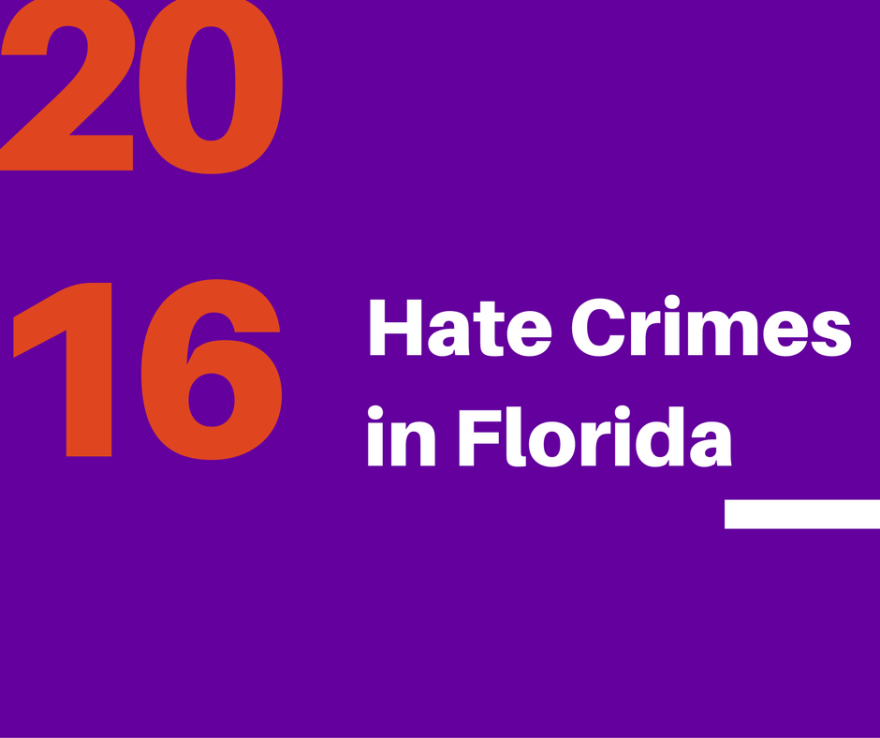Since the election of Donald Trump as president, there are reports, and increasing concerns, that the number of hate crimes across the nation may increase. But what are “hate crimes” and how are they handled?
As of Tuesday, more than 400 incidents of harassment or intimidation since the election have been reported by the Southern Poverty Law Center.
“The definitions are a bit fuzzy, because of course there are many state laws that all express it differently,” said Mark Potok, a senior fellow at the SPLC, appearing on PBS earlier this year. “Essentially, a hate crime is a crime that is motivated in whole or in part by bias against a particular named class of people; LGBT people, black people, white people, certain religions are so on.”
There were 65 hate crimes in Florida in 2014, according to the latest available FBI figures. Assistant State Attorney John Molchan says in the First Judicial Circuit (Escambia, Santa Rosa, Okaloosa and Walton Counties) they’re seeing more cases due to the expansion of the list of hate crimes.
“Physical or mental disabilities or advanced ages have certainly come into the realm,” said Molchan. “And that’s certainly going to increase our numbers on these kind of cases.”
Under Florida’s Hate Crime Reporting Law, those convicted face more severe penalties than for non-hate crimes.
“If you have a crime committed with that idea of hate or prejudice as a focal point, then in essence it moves the crime up one degree,” Molchan said. “For instance, a felony of the second degree would be reclassified as a felony of the first degree. Instead of a maximum of 15 years [in prison] the perpetrator would be looking at a maximum of 30.”
“It’s not so much as keeping the designation away, it would be the state’s obligation to charge the crime, and then charge as a hate crime,” said Barry Beroset, a criminal defense attorney in Pensacola.
One of the things prosecutors have to do, he says, is to prove there was a prejudicial intent by the defendant: based on race, religion, or others listed in the statute.
“Just because a white person assaulted a black person, that necessarily wouldn’t be enough,” Beroset said. “[The prosecution] would have to show that it was motivated specifically by that intent.”
When prosecuting a hate crime in connection with a murder, for which the death penalty is being sought, Assistant State Attorney John Molchan says the hate crime charge can be superfluous.
“We have certain aggravating factors in those types of murder cases,” said Molchan. “The fact that it may be prejudicial, it’s not that it’s a side issue, it’s just not particular pertinent to aggravating factors.”
Chris Canova, the U.S. Attorney for northern Florida, declined to be interviewed for this story. The 2009 federal Shepard-Byrd Act, named after hate victims Matthew Shepard and James Byrd, added gender, gender identity, sexual orientation, and disability to the original 1969 law.
But federal prosecutions have had limited success. Out of 270 cases since 2010, only 35 were prosecuted, with 29 convictions.





